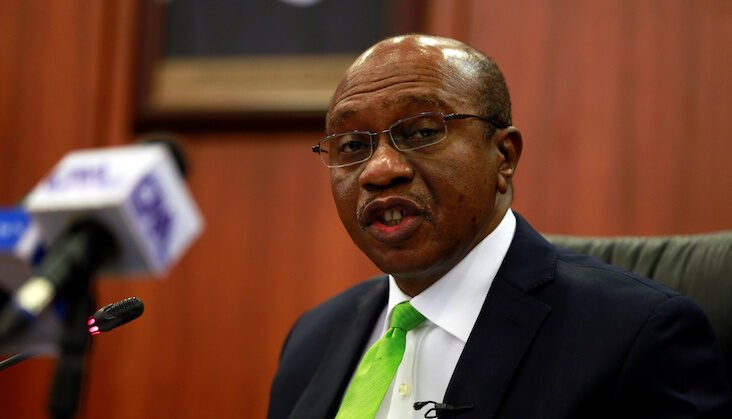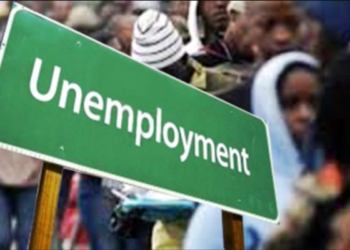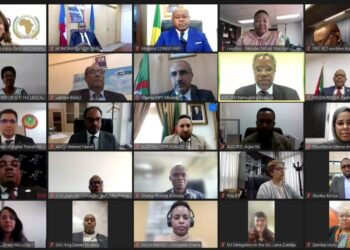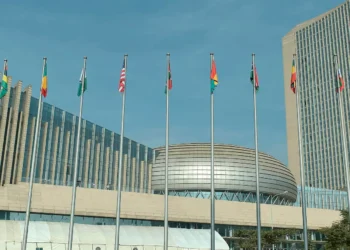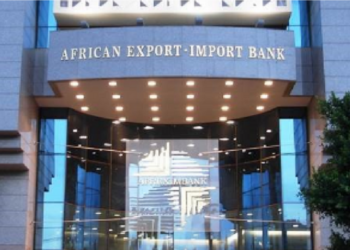Article summary
- Economists say the PAPSS and RT-200 are yet to have any tangible impact on Nigerian businesses and the economy at large.
- Although the Pan-African Payment Settlement System has been set up and is ready for use, economists say its success cannot be rated because African countries are yet to start trading as a single market.
- The RT-200 scheme should be reconsidered as it does not make economic sense. The official and parallel market differential is an incentive for the abuse of the scheme.
Fifteen months after the Pan-African Payment Settlement System (PAPSS) was adopted by the African Union (AU), and fourteen months after the CBN launched the Race to $200 billion in FX Repatriation (RT-200)” program, stakeholders have downplayed their impact on Nigerian companies and the economy at large.
Recall that the 35th Ordinary Session of the Assembly of the AU directed the AfCFTA and Afreximbank to deploy the system to cover the entire continent. PAPSS was officially launched in Accra, Ghana on January 13, 2022, thus making it available for use by the public.
What are the PAPSS and the RT-200 Programme?
The PAPSS is a central Financial Market Infrastructure (FMI) that supports payment arrangements to expand the international trade of African states and facilitate the central bank’s economic and financial integration.
Also, the RT-200 program was introduced to ensure that Nigeria achieves the goal of $200 billion in FX repatriation, exclusively from non-oil exports in 3-5 years. The initiative was unveiled by CBN Governor Godwin Emefiele.
The program comprises five key components that could reach the goal of reaching $200 billion within the timeframe namely: Value-Adding Exports Facility, Non-Oil Commodities Expansion Facility, Non-Oil FX Rebate Scheme, Non-Oil Export Terminal, and Biannual Non-Oil Export Summit.
The modus operandi is that the CBN will pay exporters ₦65 for every US1 repatriated and sold to Approved Dealer Banks (ADBs) through the Investors’ & Exporters’ FX Window for third-party use.
Also, the CBN will pay ₦35 for every US$1 repatriated and sold into the I&E Window for “own” use on eligible transactions (the spread should not be more than 10 Kobo).
More backstory
Sequel to the program’s launch, some stakeholders had gone the extra mile to empower their customers to benefit maximally from the scheme. For example, as part of an effort to sensitize customers nationwide, and help customers to stay on top of events and their businesses, Fidelity Bank organized nationwide workshops on the new policy and other emerging sector issues.
Initially, the CBN had harped a positive impact on the RT-200. Barely two months after its introduction, statistics released in April 2022 by the Bankers Committee indicated that 150 exporters had repatriated $60 million in export proceeds which qualified them for the quarterly payments of N3.5 billion FX rebate.
Nine months into the launch of the RT200 FX program, the CBN said, the volume of foreign exchange inflow into the country had risen by 56.3 per cent in 2022 as it has paid out about N81 billion in rebates.
Experts are sceptical
But experts have punched holes in the much-touted success of the scheme. The President of the Independent Shareholders Association of Nigeria, Moses Igbrude, told Nairametrics that attracting foreign exchange would require ramping up exports, but cautioned that it would depend on good infrastructure and a clamp down on corruption, especially at the ports.
He also stated that a good way to attract foreign exchange into Nigeria would be by reducing the difference between the official and parallel rates of forex.
Igbrude cited instances of investors bringing in foreign exchange and being denied access to it on the premise of non-availability by the CBN. He said such positions naturally scare away investors and make the country lose vital foreign exchange.
Commenting on the PAPSS, he said the idea is noble and if implemented would make business transactions across the continent smoother. Citing the example of Nigerian banks foraging wider afield on the continent, he said the PAPSS would benefit Nigerian interests.
Also, the Chief Executive of Anthill Concepts Limited, Dr Emeka Okengwu, questioned whether Africa has been able to meet the convergent criteria, form the common market that would use the PAPSS, and the standard to discount against.
He said it would be necessary to think out the PAPSS more deeply. He said payment should be fair enough to weigh what each party is bringing to the table.
- “If what we are doing is to be discounting our goods imported from China, and trying to localize it into our African market, it doesn’t sit very well,” he said.
Commenting on the RT-200, he said it’s too early to begin to rate the program because it is supposed to be about the establishment of industries, and such programs have five-year cycles, and three years to reach a return on investments, hence, it may be too early to begin to run any reviews on them because it’s not up to three years.
He said at this point the time is not rife to start talking about breakeven points or return on investment.
- “At this point, we should be looking at how many industries and startups the scheme has supported and how many jobs it has created. We can call the scheme ‘work in progress’,” he added.
Another economist who preferred not to be named, told Nairametrics that the PAPSS is supposed to be a payment platform, but questioned that if there is no trading, what are African countries going to pay for? He said Africa is not picking up in terms of active intra-continental trading.
He said when active trading starts then we will be able to determine the effectiveness of the PAPSS.
The economist said the platform is ready to support trade within the continent, but there is no traction yet. He said some state institutions that are supposed to support the trade are not showing enough commitment, not just in Nigeria, but across the continent, to the ideals of the AfCFTA.
Pertaining to the RT-200, he said he does not believe in it because it does not make economic sense. He said you cannot expect exporters or people who want to bring in money to be forfeiting N300 on every dollar for N65 and claim to be giving exporters incentive to bring in forex.
N300 is essentially the difference in exchange rates between the official and parallel market rates. He said what makes economic sense is to allow anybody who has foreign exchange to put it into his domiciliary account and have free access to it and trade it at a willing buyer/willing seller rate. He said the foreign exchange policy of the CBN is a problem.
On his part, a director at the Manufacturer’s Association of Nigeria (MAN), Ambrose Oruche, told Nairametrics that there is hardly any impact the PAPSS is having on trade because trade among AfCFTA member countries is still very scant.
- “The app is still very dormant because intra-Africa trade is still very low in volume,” he said. He added that the Association’s research team will soon report on the impact of the RT-200 on forex attraction through the manufacturing sector.
Meanwhile, the president of the Association of Bureau de Change (ABCON), Alhaji Aminu Gwadabe, commenting on the PAPSS, noted that despite its laudable objectives the potential of the platform is yet to be fully utilized in the region.
Gwadebe said the impact of the PAPSS on the operations of the BDCs is very low as the sector is mostly controlled by an ungoverned/undocumented player as the licensed BDCs are not allowed to operate on the service.
He however boasted that ABCON and its members have adopted a digital cloud-based platform and transformed from a traditional record-keeping business platform to a digital platform.
- “Our sales registers, purchase registers, KYC, CDD, and receipt issuance are all digital. We are connected to the regulatory and security platforms on line real time for our returns renditions, STR.CTR, reports. We are therefore equipped to partner with the regulators to play certain roles in its awareness and acceptability through different levels of agreement.
- “We, as a group, support reforms and consolidation and our template tagged: BDCs: Beyond 2022, is being looked into and one of the major issues to be unveiled in our coming AGM on the 11th of May, in Lagos.”
What you should know
The World Bank had advised the CBN to review the ‘Race to US$200 Billion in FX Repatriation (RT200 FX) Program’ due to its impact on the country’s foreign exchange.
The Bank, in a report, stated that the RT200 FX Program is only worsening the foreign exchange situation in Nigeria, which has seen foreign reserves deplete.
- The World Bank report read: “The main component of this program is a rebate scheme to encourage the repatriation and sale of export proceeds into the FX market.
- “Despite the good intentions of this scheme, it has, in practice, created an additional FX window with a different (subsidized) exchange rate, even if transactions are executed through the I&E window.
- “Moreover, with the rising parallel-to-official rate premium, incentives are created for agents to settle transactions outside of the I&E window at the parallel rate even after benefiting from the RT-200 rebate. This policy should be reconsidered.”

